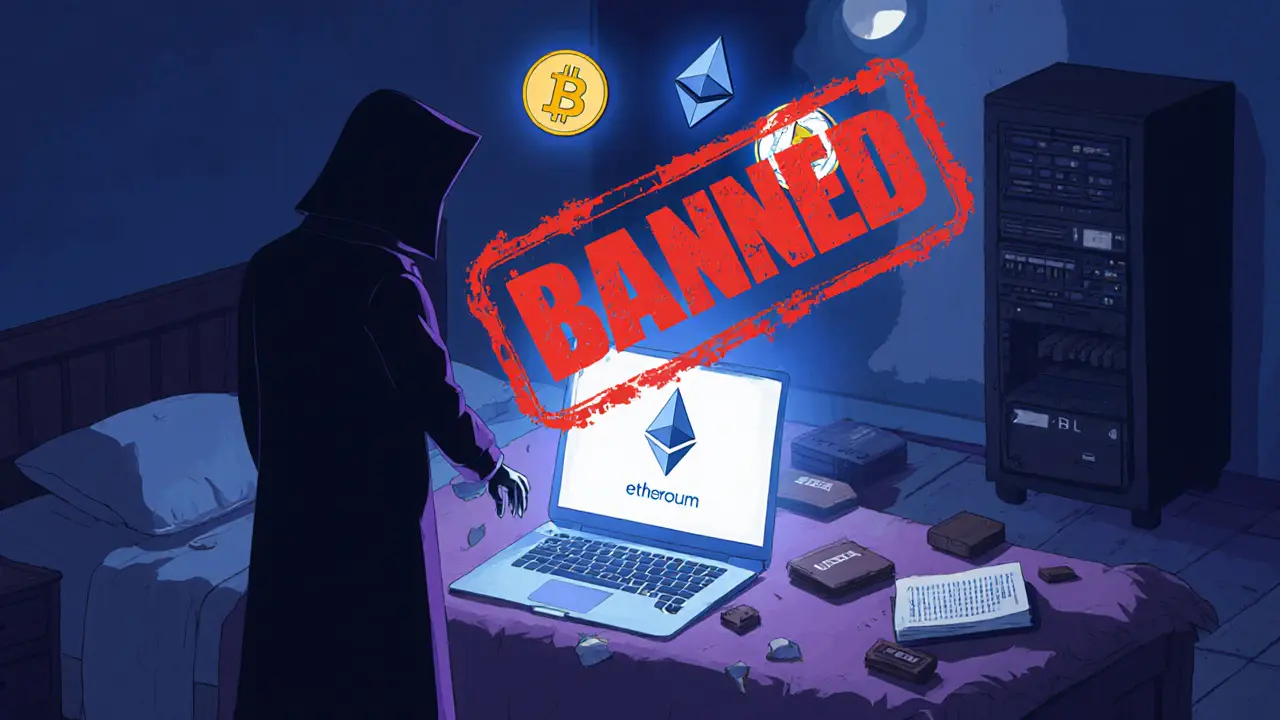Law No. 25-10: Crypto Regulations in Morocco and What It Means for Traders
When Morocco passed Law No. 25-10, a 2017 law that explicitly prohibits the use of cryptocurrencies as a payment method. Also known as the Ban on Virtual Currencies, it didn’t stop people from using Bitcoin or Ethereum — it just made them do it quietly. This isn’t about technology. It’s about control. The central bank didn’t want citizens bypassing the Moroccan dirham, and regulators feared untraceable money flows. But here’s the twist: crypto didn’t disappear. It moved underground — and kept growing.
Law No. 25-10 targets cryptocurrency payments, using digital assets to buy goods or send money. But it says nothing about holding, trading, or mining. That loophole is why P2P platforms like Binance P2P and LocalBitcoins exploded in Morocco. Traders buy Bitcoin with cash at markets, swap it for USDT, and use it to send remittances to family abroad — bypassing slow, expensive banks. Meanwhile, DeFi, a system that lets people lend, borrow, and earn without banks. Also known as decentralized finance, it’s become a quiet lifeline for young Moroccans who can’t get loans from traditional institutions. They’re not breaking the law by holding crypto. They’re breaking the system that left them out.
And it’s not just individuals. Developers in Casablanca and Rabat are building tools to help users navigate the gray zone — wallet apps that auto-convert crypto to dirhams, local Telegram groups that share P2P rates, even crypto education TikToks that teach how to avoid detection. The government keeps issuing warnings, but enforcement is patchy. A trader might get fined if caught using crypto to pay for a phone, but no one’s raiding homes to seize Bitcoin wallets.
Law No. 25-10 was meant to stop crypto. Instead, it turned it into a survival skill. You’ll find posts here on how Moroccans use stablecoins like USDC to protect savings from inflation, how traders bypass restrictions using offshore exchanges, and why even the central bank quietly monitors on-chain data to track capital flight. This isn’t about legality. It’s about real people finding ways to thrive when the system doesn’t work for them.
Below, you’ll see how these same themes show up in real stories — from Nigeria’s P2P boom to Venezuela’s crypto lifeline, and even how Vietnam fines users for crypto payments. Law No. 25-10 isn’t an outlier. It’s part of a global pattern: when governments try to shut down money, people just build a better one.
Legal Penalties for Crypto Trading in Algeria: What You Need to Know in 2025
Posted By Tristan Valehart On 6 Nov 2025 Comments (15)

Algeria bans all cryptocurrency activities under Law No. 25-10, with penalties including jail time and fines up to $14,700. Trading, holding, or even promoting crypto can lead to prosecution. Learn what’s illegal, who’s at risk, and how enforcement works in 2025.
READ MORE
